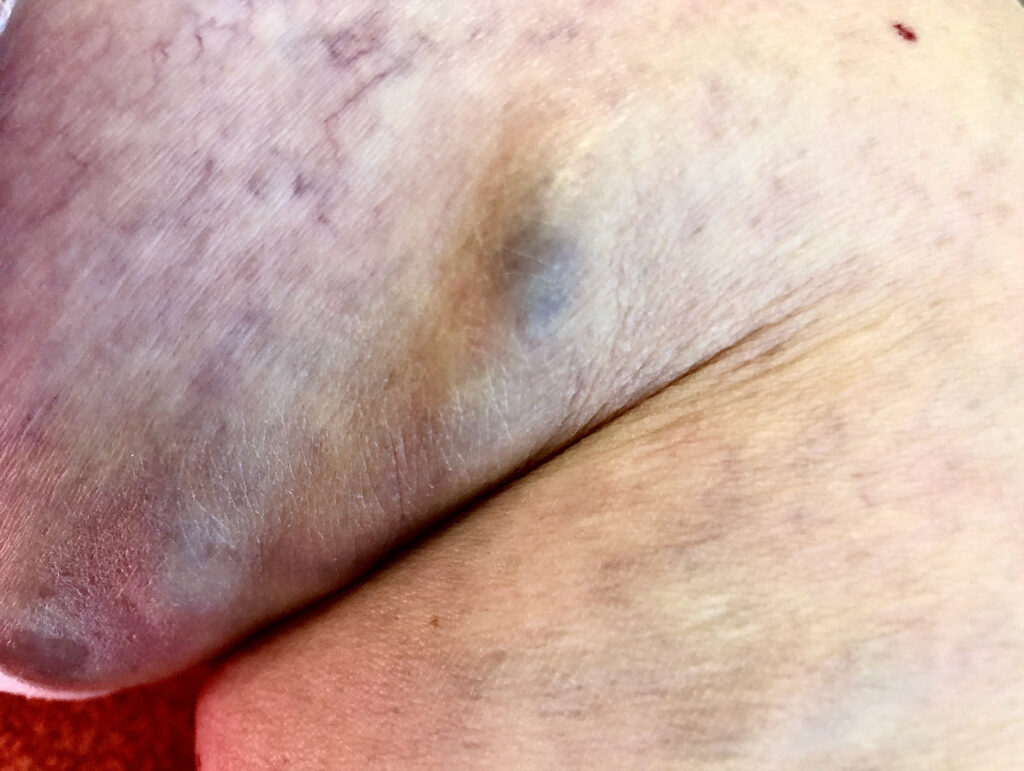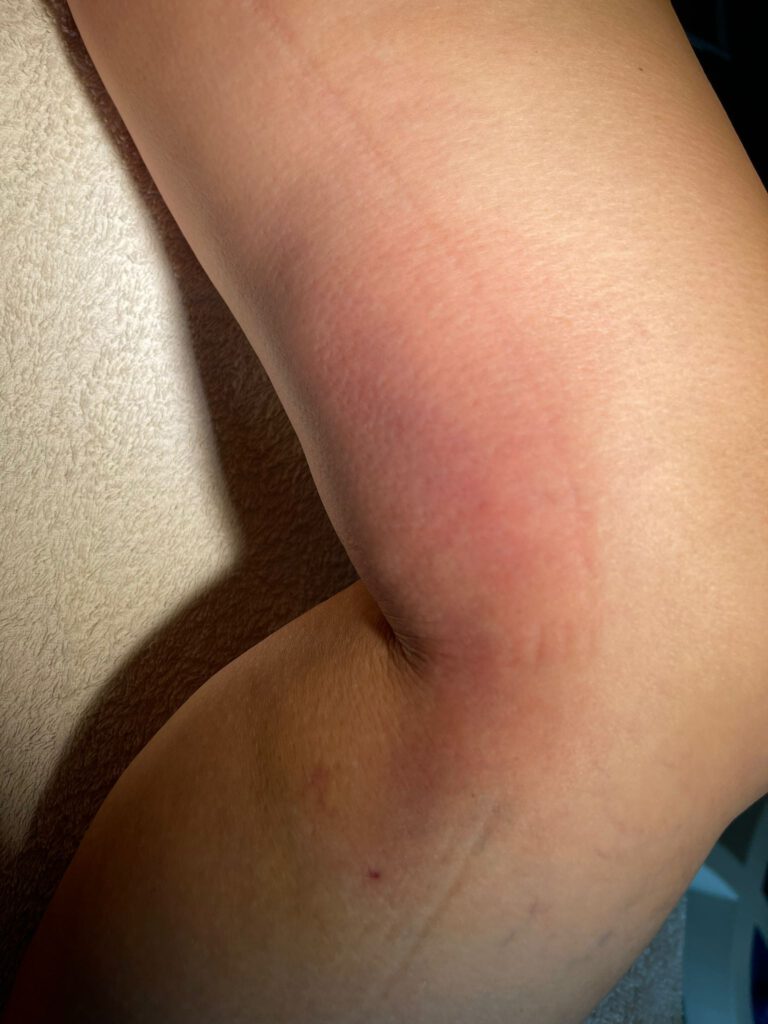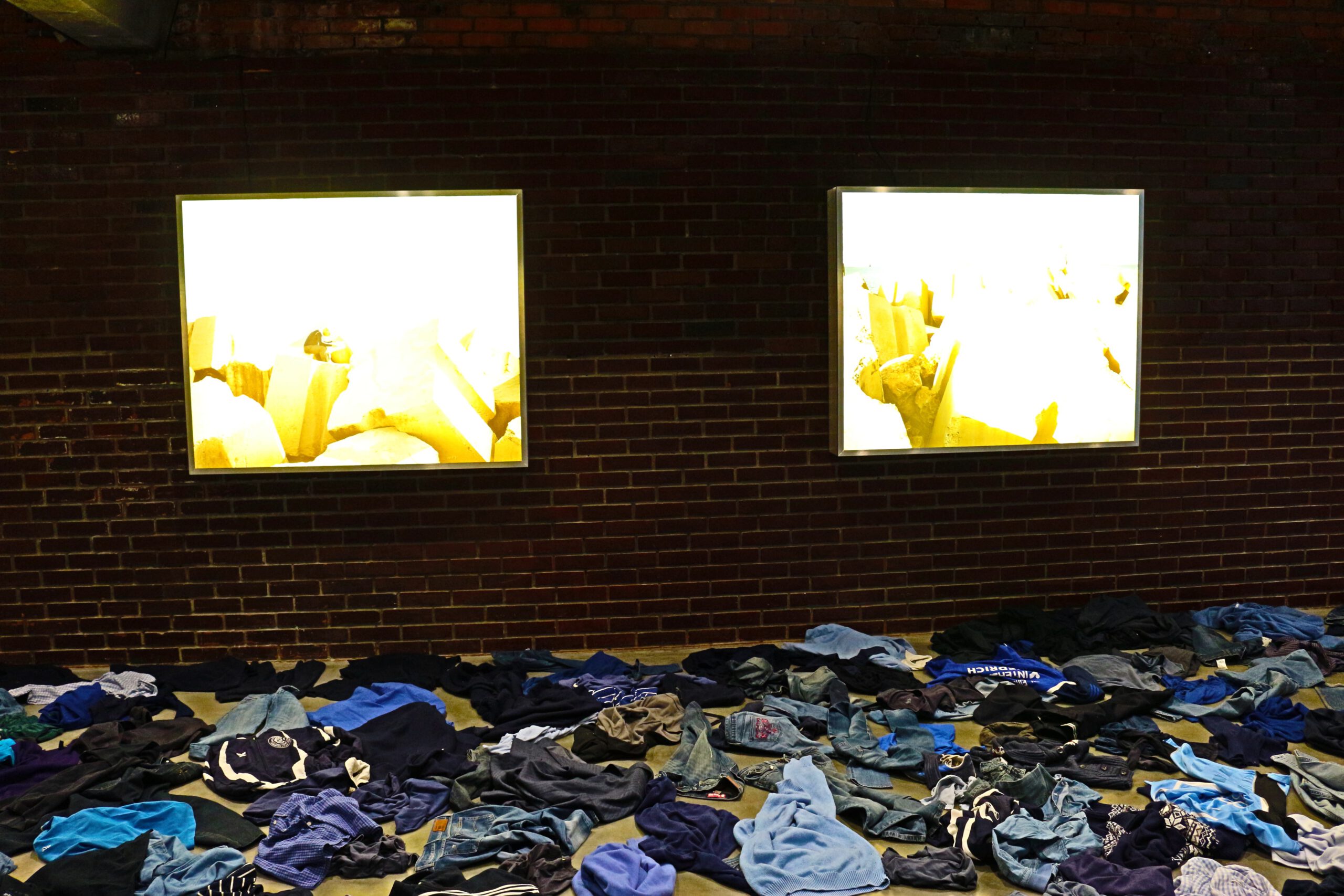Saphenion®: Covid Booster-Impfung und Krampfadern – Gefäßreaktionen?
Saphenion®: Covid booster vaccination and varicose veins – vascular reactions?
Saphenion®: Covid Booster-Impfung und Krampfadern
Welche Auswirkungen hat eine Covid-Impfung mit mRNA-Impfstoffen auf das Immunsystem und dann auch auf Gefäße. Diese Frage stellt sich uns und unseren Kollegen seit 10 Monaten immer wieder und wurde auf unserer Website auch schon intensiv duskutiert. Nunmehr ergibt sich erneut eine fragile Situation, da weitere Impfungen, sog. Booster-Impfungen, deren notwendige Anzahl zwischen 2 und 8 Impfungen variieren, empfohlen werden und dann auch gesetzlich vorgeschrieben werden sollen.
Die Ständige Impfkommission hat ihre Empfehlungen zur COVID-19-Auffrischimpfung veröffentlicht. Danach können alle Personen ab 18 Jahren eine Booster-Impfung erhalten. Diese soll in der Regel sechs Monate nach der letzten Impfdosis der Grundimmunisierung erfolgen.
Wegen des höheren Risikos für einen schweren Verlauf von COVID-19 sollen laut Ständiger Impfkommission (STIKO) ältere oder vorerkrankte Personen bei den Auffrischimpfungen bevorzugt berücksichtigt werden, um diese Personen möglichst rasch gut zu schützen und eine schnelle Entlastung der medizinischen Versorgungsstrukturen zu erreichen. Bisher Nicht-Geimpfte sollen ebenfalls vordringlich geimpft werden.
Die Booster-Impfung soll mit einem mRNA-Impfstoff erfolgen. Für Menschen unter 30 Jahren sowie Schwangere empfiehlt die STIKO ausschließlich den Einsatz von Comirnaty von BioNTech/Pfizer. Hingegen seien für Personen ab 30 Jahren beide derzeit verfügbaren mRNA-Impfstoffe (Comirnaty und Spikevax von Moderna) gleichermaßen geeignet.
Saphenion®: Covid booster vaccination and varicose veins
What effects does a Covid vaccination with mRNA vaccines have on the immune system and then also on blood vessels? We and our colleagues have been asking this question again and again for 10 months and it has already been discussed intensively on our website. A fragile situation now arises again, since further vaccinations, so-called booster vaccinations, the necessary number of which vary between 2 and 8 vaccinations, are recommended and should then also be prescribed by law.
The Standing Vaccination Commission has published its recommendations on COVID-19 booster vaccination. After that, anyone over the age of 18 can receive a booster vaccination. This should usually take place six months after the last vaccination dose of the basic vaccination.
Because of the higher risk of a severe course of COVID-19, according to the Standing Vaccination Commission (STIKO), older or previously ill people should be given preference in the booster vaccinations in order to protect these people as quickly as possible and to achieve quick relief of the medical care structures. Those who have not yet been vaccinated should also be vaccinated as a matter of priority.
The booster vaccination should be done with an mRNA vaccine. For people under 30 years of age and pregnant women, STIKO recommends only using Comirnaty from BioNTech / Pfizer. In contrast, both currently available mRNA vaccines (Comirnaty and Spikevax from Moderna) are equally suitable for people aged 30 and over.


Saphenion®: Covid Booster-Impfung und Krampfadern – Nebenwirkungen am Gefäßsystem
Saphenion®: Covid booster vaccination and varicose veins – side effects on the vascular system
Naturgemäß sehen wir Patienten, bei denen Gefäßerkrankungen der Arterien und Venen sichtbar und symptomatisch sind. Im August / September 2021 hat die Zahl an Thrombosen / Blutungen in unserer Praxis massiv zugenommen. Diese sahen wir sowohl nach der Impfung, als auch nach der Therapie von Krampfadern. Die Vorstellung erfolgte in allen Fällen wegen akuter Venenthrombosen der tiefen Bein – / Beckenvenen (TVT) oder oberflächlicher Hautvenen an Armen und Beinen (OVT) in den ersten 8-12 Wochen nach erfolgter Covid-Impfung.
Auch die Zahl post operativer Nebenwirkungen bei Patienten, die kurz zuvor ihre 2. Covid-Impfung erhalten haben, hatte ab August 2021 deutlich zugenommen. Zunehmend besuchten uns Patienten, die in den Sommermonaten ihre zweite Impfung mit einem mRNA-Impfstoff erhalten hatten. Nach durchgeführter Diagnostik hatten wir zeitnah die Therapie mittels non thermischer minimalinvasiver Kathetertechnik (Mikroschaum, VenaSeal, VenaBlock) durchgeführt.
Davon sind wir – wie bereits dargestellt – nun grundsätzlich abgerückt. Die Gründe sind Folgende: Immer häufiger haben wir bei unseren Patienten, die im Zeitraum von 14 Tagen bis 12 Wochen vor der Krampfadertherapie ihre 2. Impfung erhalten hatten, Venenentzündungen und Gewebeentzündungen nach der Mikroschaumtherapie oder Venenkleber – Therapie gesehen. Diese Nebenwirkungen sind eigentlich gut zu therapieren, jedoch nehmen sie bei Patienten nach der Impfung an Häufigkeit und Stärke zu – auch von Schmerzen und Fieberattacken begleitet. Diese neuen Erfahrungen hat uns zunächst unsere Therapiestrategie anpassen lassen.
Es stellte sich uns die Frage nach den Ursachen für die Anhäufung der beschriebenen Nebenwirkungen bei frisch Covid-Geimpften – Eine im Oktober veröffentlichte schwedische Studie mit Zellkulturen (Laborbedingungen)) untersuchte den Einfluss des SARS-CoV-2-Spike-Proteins auf die sogenannte adaptive Immunität. Die Studie hat ergeben, dass das Spike-Protein in den Zellkern eindringt und die DNA-Schadensreparatur – und damit die adaptive Immunität – erheblich hemmt. Wenn DNA-Schäden nicht ordnungsgemäss repariert werden können, verstärken sie Krankheiten, die durch Virusinfektionen ausgelöst werden.
Dieses Resultat ist sowohl für eine SARS-CoV-2-Infektion relevant wie auch für die mRNA- und Vektor-«Impfungen», welche die Produktion des SARS-CoV-2-Spike-Proteins in voller Länge verursachen. Gleichzeitig wird aber auch die Immunität gegen in den Körper eingebrachte Fremdkörper (z.B. Venenkleber, Mikroschaum, Stents, Prothesen etc) herabgesetzt, so daß eine erhöhte Infektions- und Abstossungsreaktion gesehen wird.
Naturally, we see patients in whom vascular diseases of the arteries and veins are visible and symptomatic. In August / September 2021, the number of thromboses/bleeding in our practice increased massively. We saw this both after the vaccination and after the treatment of varicose veins. In all cases, the presentation was due to acute vein thrombosis of the deep leg / pelvic veins (DVT) or superficial skin veins on the arms and legs (OVT) in the first 8-12 weeks after the Covid vaccination.
The number of post-operative side effects in patients who had recently received their 2nd Covid vaccination had also increased significantly from August 2021. We were increasingly visited by patients who had received their second vaccination with an mRNA vaccine in the summer months. After the diagnostics had been carried out, we promptly carried out the therapy using non-thermal, minimally invasive catheter technology.
As already mentioned, we have now fundamentally moved away from this. The reasons are as follows: We have seen more and more frequently phlebitis and tissue inflammation after microfoam therapy or vein glue therapy in our patients who had received their second vaccination between 14 days and 12 weeks before varicose vein therapy. These side effects are actually easy to treat, but they increase in frequency and severity in patients after the vaccination – also accompanied by pain and fever attacks. These new experiences made us adapt our therapy strategy first.
The question arose as to the reasons for the accumulation of the described side effects in people who have recently been vaccinated with Covid – A Swedish study with cell cultures (laboratory conditions) published in October examined the influence of the SARS-CoV-2 spike protein on the so-called Adaptive Immunity. The study found that the spike protein penetrates the cell nucleus and significantly inhibits DNA damage repair – and thus adaptive immunity. When DNA damage cannot be properly repaired, it exacerbates diseases caused by viral infections.
This result is relevant for a SARS-CoV-2 infection as well as for the mRNA and vector «vaccinations», which cause the production of the SARS-CoV-2 spike protein in full. At the same time, however, the immunity to foreign bodies introduced into the body (e.g. vein glue, microfoam, stents, prostheses, etc.) is reduced, so that an increased infection and rejection reaction is seen.
Saphenion®: Covid Booster-Impfung und Krampfadern – Unsere klinischen Empfehlungen
Saphenion®: Covid booster vaccination and varicose veins – Our clinical recommendations
Zu dem diskutierten Thema bekommen wir inzwischen zahlreiche Anfragen unserer Patienten in den beiden Praxen Berlin und Rostock, als auch recht zahlreiche Anrufe aus der gesamten Bundesrepublik und auch den europäischen Ländern. Grundsätzlich empfehlen wir bei geplanter Covid Booster-Impfung, als auch bei der Therapieplanung vor oder nach einer Booster-Impfung ein ähnliches Herangehen wie nach der 2. Impfung:
- Patienten, die nach einer Covid-Impfung eine tiefe Venenthrombose oder oberflächlichen Venenthrombose entwickelt haben, sollten bei der Bosster-Impfung eine medikamentöse Thromboseprophylaxe bekommen. Diese sollte 4 Tage vor dem Impfgtermin beginnen, am Impftag einmalig ausgesetzt werden und dann weitere 3-4 Wochen fortgesetzt werden. Datun stehen zahlreiche Medikamente zur Verfügung und werden auch empfohlen (z.B. Lixiana, Xarelto als Tabletten oder Clexane, Arixtra als Injektionsspritzen).
- Patienten, bei denen eine angeborene Gerinnungsstörung bekannt ist, oder die anlässlich eines anderen Krankheitsgeschehens (Unfall, Op,) bereits schon einmal eine Thrombose /Embolie erlebt haben, sollten ebenfalls eine Thromboseprophylaxe erhalten.
- Therapeutische Eingriffe am Gefäßsystem (Arterien, Venen, Krampfadern) sollten, wenn nicht ein akutes Geschehen vorliegt (Arterieller Verschluß Beine, Schlaganfall, venöse Thrombose etc), frühestens 2-3 Monate nach der Booster-Impfung durchgeführt werden.
- Nach einem durchgeführten therapeutischen Eingriff am Gefäßsystem (arterieller Bypass / Stent, Krampfadertherapie) sollte eine Impfpause von mindestens 4 Wochen empfohlen werden.
Nach o.g. Schema gehen wir in seit 4 Wochen in unserer Praxis vor, und wir beraten unsere Patienten auch dahingehend, unabhängig davon, ob wir die Therapie durchführen oder durchgeführt haben oder ein Kollege oder Krankenhaus ausgewählt worden ist. Unsere Erfahrungen diesbezüglich zeigen eine sehr niedrige koinzidente Komplikationsrate bei der Behandlung vor oder nach der Impfung.
We have now received numerous inquiries from our patients in the two practices in Berlin and Rostock, as well as quite a number of calls from all over Germany and European countries. In principle, we recommend a similar approach to the planned Covid Booster vaccination as well as when planning therapy before or after a booster vaccination as after the 2nd vaccination:
- Patients who have developed deep vein thrombosis or superficial vein thrombosis after a Covid vaccination should receive drug prophylaxis with the Bosster vaccination. This should start 4 days before the vaccination date, be discontinued once on the day of vaccination and then continue for another 3-4 weeks. Numerous medications are available and are also recommended (e.g. Lixiana, Xarelto as tablets or Clexane, Arixtra as injection syringes).
- Patients who are known to have a congenital coagulation disorder or who have already experienced a thrombosis / embolism as a result of another illness (accident, surgery) should also receive thrombosis prophylaxis
- Therapeutic interventions in the vascular system (arteries, veins, varicose veins) should be carried out at the earliest 2-3 months after the booster vaccination, unless there is an acute event (arterial occlusion in the legs, stroke, venous thrombosis, etc.).
- After a therapeutic intervention on the vascular system (arterial bypass/stent, varicose vein therapy), a vaccination break of at least 4 weeks should be recommended.
We have been following the above scheme in our practice for 4 weeks, and we also advise our patients on this, regardless of whether we are carrying out or have carried out the therapy or a colleague or hospital has been selected. Our experience in this regard shows a very low coincident complication rate with treatment before or after vaccination.

Photos: Nancy, Utzius
Literatur / Links
Furer V, Rondaan C, Heijstek MW, Agmon-Levin N, van Assen S, Bijl M, Breedveld FC, D’Amelio R, Dougados M, Kapetanovic MC, van Laar JM, de Thurah A, Landewé RB, Molto A, Müller-Ladner U, Schreiber K, Smolar L, Walker J, Warnatz K, Wulffraat NM, Elkayam O. 2019 update of EULAR recommendations for vaccination in adult patients with autoimmune inflammatory rheumatic diseases. Ann Rheum Dis. 2020 Jan;79(1):39-52. doi: 10.1136/annrheumdis-2019-215882. Epub 2019 Aug 14. PMID: 31413005.
Vickers ER, McClure DL, Naleway AL, Jacobsen SJ, Klein NP, Glanz JM, Weintraub ES, Belongia EA. Risk of venous thromboembolism following influenza vaccination in adults aged 50years and older in the Vaccine Safety Datalink. Vaccine. 2017 Oct 13;35(43):5872-5877. doi: 10.1016/j.vaccine.2017.08.086. Epub 2017 Sep 6. PMID: 28888342; PMCID: PMC6508529.
Zhu T, Carcaillon L, Martinez I, Cambou JP, Kyndt X, Guillot K, Vergnes MC, Scarabin PY, Emmerich J. Association of influenza vaccination with reduced risk of venous thromboembolism. Thromb Haemost. 2009 Dec;102(6):1259-64. doi: 10.1160/TH09-04-0222. PMID: 19967159.
Sen A, Bakken IJ, Govatsmark RES, Varmdal T, Bønaa KH, Mukamal KJ, Håberg SE, Janszky I. Influenza vaccination and risk for cardiovascular events: a nationwide self-controlled case series study. BMC Cardiovasc Disord. 2021 Jan 13;21(1):31. doi: 10.1186/s12872-020-01836-z. PMID: 33435871; PMCID: PMC7803467.
Khan MS, Shahid I, Anker SD, Solomon SD, Vardeny O, Michos ED, Fonarow GC, Butler J. Cardiovascular implications of COVID-19 versus influenza infection: a review. BMC Med. 2020 Dec 18;18(1):403. doi: 10.1186/s12916-020-01816-2. PMID: 33334360; PMCID: PMC7746485.
Furer V, Rondaan C, Heijstek M, van Assen S, Bijl M, Agmon-Levin N, Breedveld FC, D’Amelio R, Dougados M, Kapetanovic MC, van Laar JM, Ladefoged de Thurah A, Landewé R, Molto A, Müller-Ladner U, Schreiber K, Smolar L, Walker J, Warnatz K, Wulffraat NM, Elkayam O. Incidence and prevalence of vaccine-preventable infections in adult patients with autoimmune inflammatory rheumatic diseases (AIIRD): a systemic literature review informing the 2019 update of the EULAR recommendations for vaccination in adult patients with AIIRD. RMD Open. 2019 Sep 19;5(2):e001041. doi: 10.1136/reopen-2019-001041. PMID: 31673420; PMCID: PMC6803008.
McCarthy Z, Xu S, Rahman A, Bragazzi NL, Corrales-Medina VF, Lee J, Seet BT, Neame D, Thommes E, Heffernan J, Chit A, Wu J. Modelling the linkage between influenza infection and cardiovascular events via thrombosis. Sci Rep. 2020 Aug 31;10(1):14264. doi: 10.1038/s41598-020-70753-0. PMID: 32868834; PMCID: PMC7458909.
Liprandi ÁS, Liprandi MIS, Zaidel EJ, Aisenberg GM, Baranchuk A, Barbosa ECD, Sánchez GB, Alexander B, Zanetti FTL, Santi RL, Múnera-Echeverri AG, Perel P, Piskorz D, Ruiz-Mori CE, Saucedo J, Valdez O, Juanatey JRG, Piñeiro DJ, Pinto FJ, Quintana FSW. Influenza Vaccination for the Prevention of Cardiovascular Disease in the Americas: Consensus document of the Inter-American Society of Cardiology and the Word Heart Federation. Glob Heart. 2021 Aug 5;16(1):55. doi: 10.5334/gh.1069. PMID: 34381676; PMCID: PMC8344961.
Sen A, Bakken IJ, Govatsmark RES, Varmdal T, Bønaa KH, Mukamal KJ, Håberg SE, Janszky I. Influenza vaccination and risk for cardiovascular events: a nationwide self-controlled case series study. BMC Cardiovasc Disord. 2021 Jan 13;21(1):31. doi: 10.1186/s12872-020-01836-z. PMID: 33435871; PMCID: PMC7803467.
Zhu T, Carcaillon L, Martinez I, Cambou JP, Kyndt X, Guillot K, Vergnes MC, Scarabin PY, Emmerich J. Association of influenza vaccination with reduced risk of venous thromboembolism. Thromb Haemost. 2009 Dec;102(6):1259-64. doi: 10.1160/TH09-04-0222. PMID: 19967159.
https://www.cdc.gov/coronavirus/2019-ncov/vaccines/booster-shot.html
https://www.kbv.de/html/1150_55681.php
https://corona-transition.org/fauci-es-braucht-alle-acht-monate-covid-auffrischungs-impfungen
